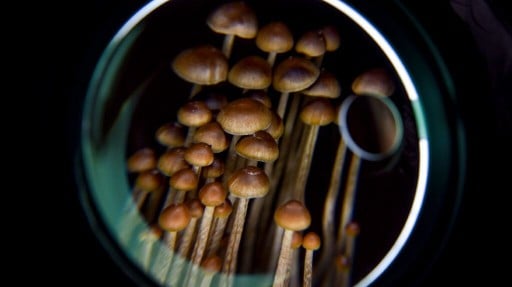
- The desserts on The Great British Bake Off TV show may not be as unhealthy as you might think when viewed from a certain perspective.
- The BMJ has published a study of the show’s recipes that finds 74% of the ingredient groups used correspond with a reduced risk of death and disease.
- However, nutritionists say the tongue-in-cheek study lacks a consideration of some important factors and should be taken with a grain of salt.
Just like one last holiday present, The BMJ has published a study suggesting the mouth-watering, decadent desserts presented on The Great British Bake Off (TGBBO) TV series may not be quite as bad for you as you might assume.
The BMJ reports that many of the ingredients the shows bakers use come from food groups that are associated with a reduction in health risks.
This does not apply, of course, to co-host Pru Leith’s notorious taste for alcohol as an ingredient.
The BMJ’s tongue-in-cheek study is an umbrella study that compiles the results of other studies.
The show, for the uninitiated, is a sweet-natured competition between British bakers baking away in a spacious tent erected on the grounds of some very attractive U.K. real estate.
Presented with increasingly complex cooking challenges, they drop off one by one, week after week, until a final winning baker is anointed at a garden party for all the season’s participants and their families. It is surprisingly funny and emotional, and the food is frequently impressive to look at, at least.
Austere, however, is something the food is most definitely not, and it would seem obvious that much of it is the type of thing one’s physician would advise one to steer well clear of.
But, setting aside the study’s long list of limitations, its findings could be used to argue that Christmas bakes are not all bad. While it is timed for the holidays, its findings could apply to treats baked at any time.
Star ingredients: Fruit, coffee, nuts
The authors of the study analyzed 48 recipes for Christmas desserts baked on the TGBBO as provided on the show’s website. They tallied up 178 unique ingredients, sorting them into broad ingredient groups.
The researchers then searched 7,008 research titles and abstracts, exploring the associations of these categories with reported risks of death or disease. The new report incorporated 46 credible umbrella studies.
The researchers reported 149 significant associations with death or disease, of which 74%, or 110, ingredient groups actually reduced the risk of death and illness.
According to the new study, various ingredients stood out as being most commonly associated with a reduction of death and disease: fruit in 40% of the associations, coffee in 16%, and nuts in 13%.
Alcohol and sugar were the ingredients most commonly associated with mortality and illness.
What about the amount of sugar in desserts?
“As the authors themselves highlight, if a dessert featured a single raspberry and four sticks of butter, the health benefits of the fruit and the detrimental effect of the butter were weighted equally,” Costa told Medical News Today.
“In truth,” she said, “many TGBBO recipes feature staggering sugar quantities.”
She singled out for special mention Rahul’s “Spiced Apple & Plum Nut Crumble With Orange & Ginger Ice Cream” recipe, which includes around 378 grams of sugar. Even split into eight servings, each packs 45 grams of sugar, well beyond the recommended daily limit.
The American Heart Association
It also bears noting that many people have more than a single serving of a particularly delicious dessert.
For every joke about Pru’s reputed love of alcohol, there is a jibe regarding co-host Paul Hollywood’s subtly expanding waistline, usually from Hollywood himself.
Why rich desserts lose their healthy appeal
“I like the focus on specific ingredients that have been previously shown to benefit health, but, of course, a few ingredients alone may not tell the whole nutritional story of a dessert,” said registered dietitian Kristin Kirkpatrick.
“Analysis of all ingredients in a dessert as a whole may be a good next step toward assessing the nutrient density of these desserts,” she suggested.
Costa said the study’s approach “precludes any concrete positive correlations between the dessert recipes and health outcomes.”
She noted out of the TGBBO’s published recipes, “There’s a reason they don’t provide the nutrition facts. With an emphasis on decadence, these recipes appeal to the eyes and taste buds and really cannot be described as even remotely healthy.”
Does alcohol remain in desserts?
While conventional wisdom posits that alcohol in food burns off and disappears during cooking, this is not completely true. Costa said “research from Washington State University, the University of Idaho, and the U.S. Department of Agriculture indicates that anywhere from 4% to 49% of the original alcohol content can remain in a dish.”
“The World Health Organization, the International Agency for Research on Cancer, and the World Heart Federation have all taken strong stances against any level of alcohol consumption due to its adverse health effects,” said Costa.
She added that recent data finds even moderate alcohol intake contributes significantly to the incidence of alcohol-related cancers — especially breast cancers in women — and disputes any assertions that it can in any way reduce cardiovascular risk.
“Consequently, the scientific consensus refutes the health benefits of moderate alcohol consumption and warns against ingesting alcohol, even in small amounts,” said Costa.
Should I avoid desserts completely?
Neither Kirkpatrick nor Costa suggested, however, that people should completely avoid dessert treats.
“I advise my patients to enjoy dessert without guilt and shame. If their dietary pattern is one rich in nutrient density the majority of the time, then simply choose a dessert that you love once in a while versus seeking health benefits from dessert,” Kirkpatrick explained.
”Enjoy your holiday delicacies in moderation, but don’t anticipate health benefits or protective effects from your snow cake pops or baked Alaska tarts.”
— Kelsey Costa
Of course, as Kirkpatrick noted, healthier dessert ingredients are better for you.
“Any dessert that includes healthy fats — like nuts, seeds, and nut butter, as well as fruit, cocoa/dark chocolate — may have more healthful ingredients, especially when additional fiber is provided from some of these food,” she said.
She cautioned, though, that “often they come along with ingredients that may offset some of these benefits.”
In the end, said Kirkpatrick, “There are many aspects to longevity, with diet playing just one role, though a large role.”
“Perhaps the takeaway” from the study, Kirkpatrick said, was that “when not consumed regularly — or when it compromises the main food in the diet — dessert can be a pleasurable experience that does not potentially harm health when coupled with an otherwise nutrient-dense diet.”





